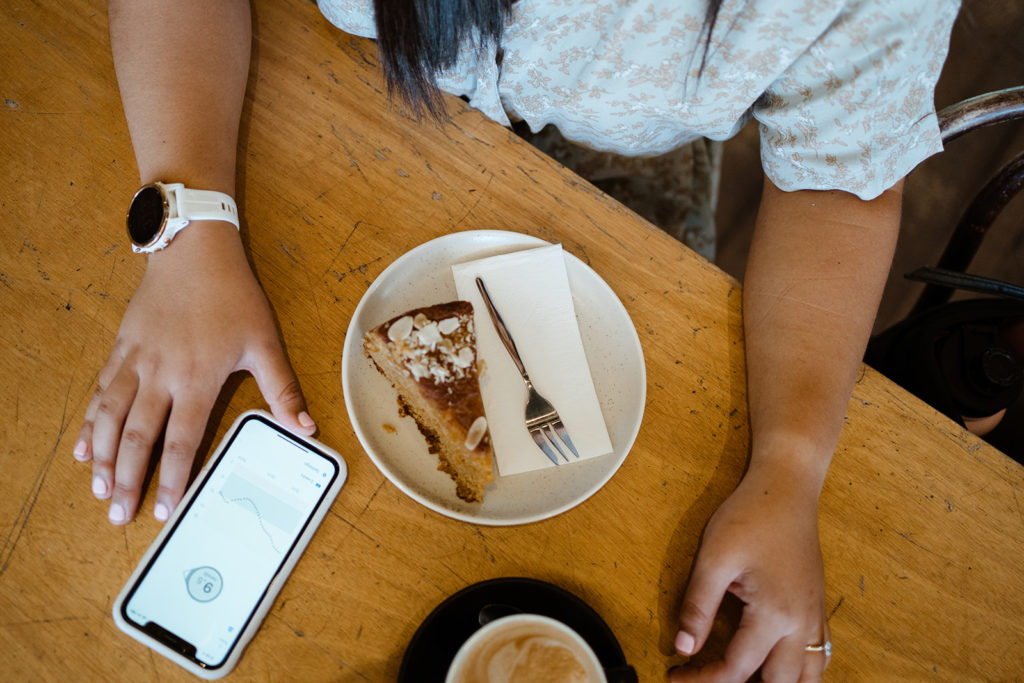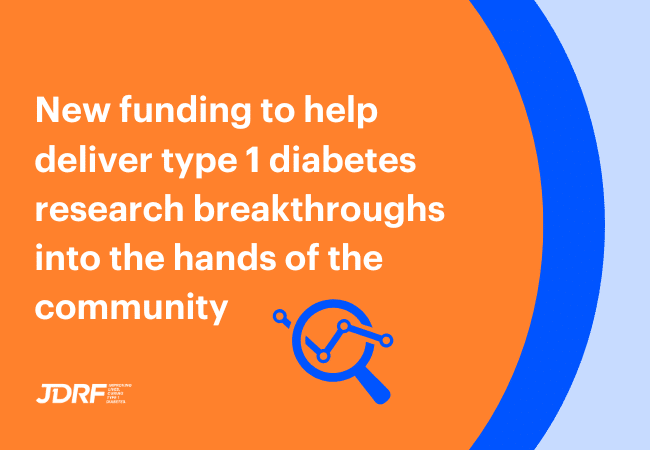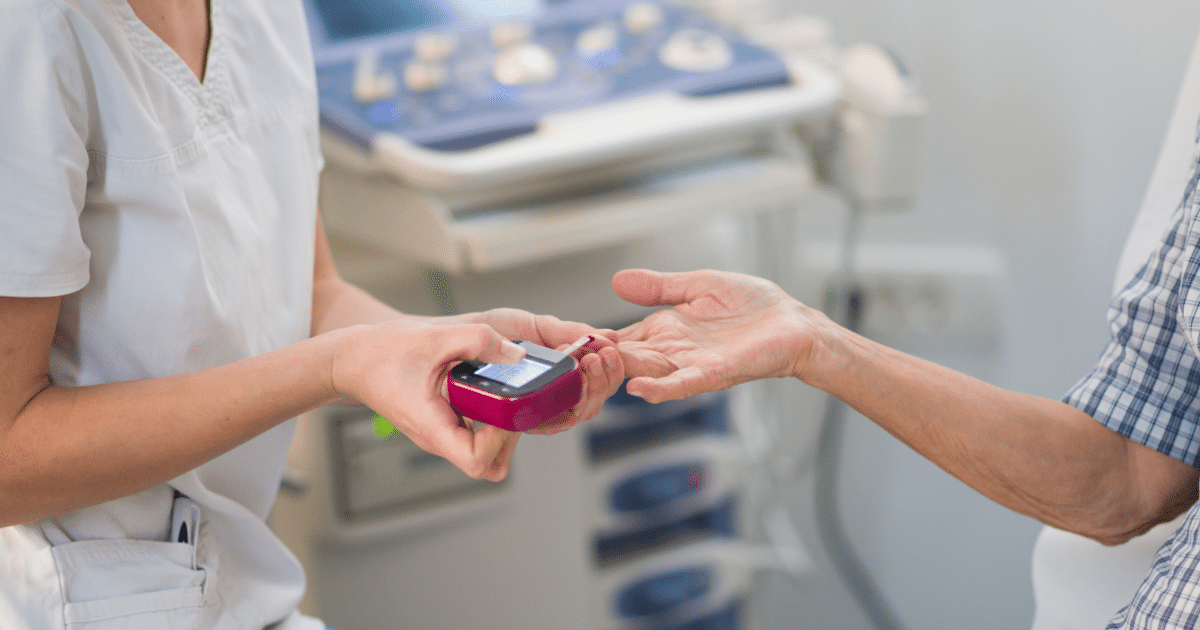Diabulimia and type 1 diabetes
This post was written by staff writers and type 1 diabetes community member Nina Gelbke, an accredited nutritionist (BHScNutr) specialising in sports and performance nutrition, and eating disorders, as part of our 2022: Time to kick T1D goals campaign.
Having a healthy relationship with food is such an important part of our overall health and wellbeing, especially our mental health. You could be eating the most nutritious and ‘healthy’ diet on paper, but if your relationship with food and mindset isn’t a positive one, then you’re not truly healthy.
In a world where we are constantly surrounded by messages of dieting and weight loss, what we ‘should’ and ‘shouldn’t’ be eating, and what we ‘should’ look like, having a healthy relationship with food is already challenging. But having type 1 diabetes just throws extra struggles on top of that, with the constant focus on numbers and degree of control needed around food in terms of managing blood sugar levels and dosing insulin. It can be tough.
The daily job of managing diabetes is enough of a mental and physical challenge as it is. We don’t need the extra stress and mental burden of an unhealthy relationship with food on top of that.
View this post on Instagram
Warning signs that you may be developing disordered eating patterns
- Constantly thinking about food 24/7
- Feeling stressed or anxious about food
- Avoiding social situations that involve food
- Cutting out entire food groups
- Creating rules around food (eg. types and quantities you can and can’t eat)
- Ignoring hunger and fullness cues
- Skipping meals
- Constantly weighing yourself and body checking
- Frequently over-eating
- Exercising to earn or burn off food
- Not being able to take a rest day even if you’re sick, injured or tired
- Obsessing over calories or macros in food
- Labelling foods as good and bad
- Feeling confused and overwhelmed about food
- Feeling guilty or beating yourself up over eating
If the above points sounded like you, it might be time to reflect on whether the way your approach food is having a positive, or not so positive, impact on you.
And really, at the end of the day, even when we are doing something out of the belief of intention that it will make us ‘healthier’ – if it’s leaving us feeling stressed, anxious, exhausted, miserable, or not able to live our lives to the fullest, is it really healthy?
What is diabulimia?
You might have heard of ‘diabulimia’. It’s not an actual medical term, but it’s used to describe the kind of disordered eating that can occur in people with type 1 diabetes. This can happen when someone starts trying to lose weight, and can include dangerous behaviours such as reducing or stopping taking insulin, as well as restricting calorie input, binging, over-exercising, or misusing laxatives to try to control weight.
Diabulimia can affect both children and adults, but is more common in teens and young adults. Women are at a higher risk of being affected.
Health consequences of diabulimia
Combining eating disorders and type 1 diabetes can have especially dangerous consequences.
Short-term complications of disordered eating along with type 1 diabetes can include:
- slow wound healing
- infections (staph and other bacterial infections, and yeast infections)
- loss of muscle tissue
- electrolyte imbalances
- ketonuria
- diabetic ketoacidosis (DKA).
Hyperglycemia (elevated levels of glucose in the bloodstream) can also occur due to insulin deficiency, damaging small vessels and nerve cells, specifically peripheral nerves.
Longer term health consequences of diabulimia can include eye damage and loss of vision, as well as diseases and damage to the kidney, heart and liver.
Diabulimia treatment
The first step to improving your relationship with food is acknowledging that your current mindset around food isn’t serving you, and something you want to work on. Then taking small steps of action to get you from where you are, to where you want to be.
It’s easier said than done, especially while managing diabetes and the stressors of carb counting, checking blood sugars, dosing insulin, and more. But you also don’t have to do it alone and there is so much help and support out there, whether that’s speaking to a friend or family member, or a qualified health professional such as a dietitian or a psychologist.
Here are a few places to reach out to for support for dealing with eating disorders and type 1 diabetes:
- Beyond Blue – call 1300 22 4636, chat online or send an email
- The Butterfly Foundation – call1800 33 4673, chat online or send an email
- Dietitians Australia – call 1800 812 942
- Australian Psychologist Society – find a psychologist who specialises in treating eating disorders

Other steps to improve your relationship with food
- Remove labels around food being ‘good’ or ‘bad’ – food has no moral value
- Focus on having regular balanced meals and snacks throughout the day
- Try tuning in to what foods you enjoy eating and what makes you feel good
- Trust your body and listen to those cues! If you’re hungry, make sure you honour that and have something to eat
- Focus on forms of exercise that you enjoy and make you feel good, and finding reasons to exercise other than those related to body shape or weight (such as getting stronger, mental health, having fun, learning new skills, socialising)
- Look at what you can add to your diet to make it more nutritious, rather than looking for things to restrict and remove
- Find your balance! Remember it never has to be all or nothing, and enjoying a few treats here and there can be part of a healthy balanced diet overall – no guilt allowed
- Be kind to yourself and remember that perfection doesn’t exist and managing diabetes is hard. A high or low blood sugar doesn’t mean you have ‘failed’ or that you can never eat that food again; it’s simply a data point we can learn from to keep doing our best!
Find out more about building and maintaining a healthy relationship with food by downloading your FREE guide Straight to the Point: A guide for adults living with type 1 diabetes.

Want more tips on being body positive?
Fill out this form to have Straight to the Point: A guide for adults living with T1D sent directly to your inbox.




